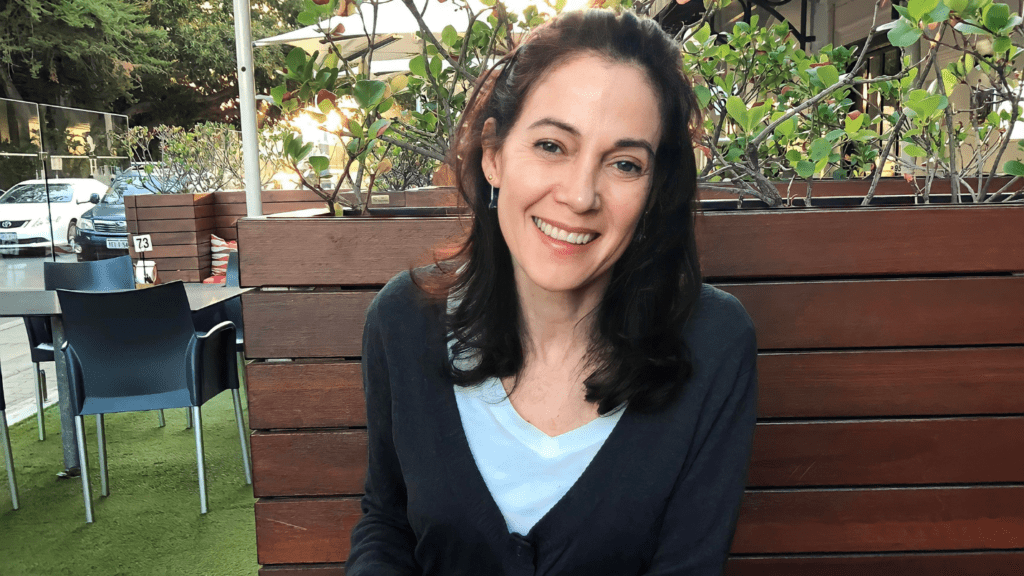Imagine being told in your mid-20s that you have Multiple Sclerosis (MS). MS is the most common acquired chronic neurological disease affecting young adults, and there is no cure.

That was the reality for our client, Helen.
As it’s World MS Day, people worldwide are encouraged to share their MS Diagnosis. Helen has kindly agreed to share her story with us.
The diagnosis
In her mid-20s, Helen was a fit and healthy primary school teacher living in a small country town who enjoyed her daily swims before work.
The first sign: She noticed her left arm wasn’t gliding through the water and kept connecting with the lane ropes. Odd.
The second sign: Her right eye became blurry a few months later. By the time she saw her optometrist, her eyesight had improved. Weird.
The final sign: A year later, the blurry vision returned, and this time, her optometrist referred her to a neurologist. The results from an MRI confirmed she had MS.
The shock was profound.
What came next?
For the next decade, Helen’s MS was classified as relapsing and remitting. Most of her symptoms were related to her ability to process sensory input, until she went jogging and tripped over her left foot multiple times.
This new flare-up soon affected the entire left side of her body, including her ability to use her left hand and stand.
Helen transitioned to a wheelchair.
Navigating MS together
In 2019, Helen was referred to Recovery Station and has been working with our multidisciplinary team to help manage her symptoms and improve her quality of life.
Our Exercise Physiologists helped maintain and improve Helen’s global body movement and strength, enabling her to complete her activities of daily living.
Our Occupational Therapists supported Helen’s independence with accessibility equipment and worked on maintaining mobility. We also completed home modifications, including a stair lift.
Our Physiotherapists helped to strengthen and support Helen’s functional capacity.
While Helen doesn’t describe living with MS as a journey, a journey implies you are going somewhere; she accepts the reality that there are good and bad days.
Now, almost three decades on, Helen continues to maintain as much independence as possible and is determined to live the most-able life she can with her partner, Andrew and her cats, Tiffany and Lexie, by her side.
At Recovery Station, we are grateful to know and work with Helen (she’s a force of nature!), and we deeply appreciate her willingness to share her MS Diagnosis story with us.
About MS
Multiple Sclerosis (MS) is a long-lasting chronic disease of the central nervous system. Most people with MS are diagnosed between the ages of 20 and 40, and it’s two to three times more common in women than in men.
No drug can cure MS, but treatments are available which can modify the course of the disease.
Some people with MS may have only mild symptoms. Others may lose their ability to see clearly, write, speak, or walk when communication between the brain and other parts of the body becomes disrupted.
At Recovery Station, our experienced clinicians help clients with mild to complex symptoms of MS.
To learn more about how we can support clients living with MS, please call 1300 588 851.
Until next time,

Side Note: The information given above is general in nature; please consult your physician or therapist if you have any particular questions.
